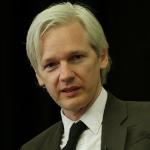The WikiLeaks Fallout
 It’s always titillating when confidential documents are leaked. But as embarrassing as the recent Wikileaks revelations may be, there is little news that is damaging.
It’s always titillating when confidential documents are leaked. But as embarrassing as the recent Wikileaks revelations may be, there is little news that is damaging.
The most damaging thing about the leaking of some 92, 000 documents on the Afghanistan war, seems not to be their content so much as who did the leaking.
It’s always newsworthy and titillating when confidential documents are leaked – witness the Pentagon Papers in the Vietnam war, and more recent leaks about Canadian soldiers turning over Taliban prisoners to Afghan authorities who might mistreat them.
This “scandal,” as claimed by WikiLeaks which specializes in revealing secrets and protecting whistle-blowers, so far doesn’t seem particularly damaging. Embarrassing, maybe, but not damaging. The revelation that the Afghan leadership tends towards corruption, is hardly news. “Exposing” this seems simply a declaration of the obvious.
Of course, one would never expect U.S. President Barack Obama or Canadian PM Stephen Harper to speak openly about Afghanistan’s President Hamid Karzai being corrupt, but you can bet your last toonie that both of them are quite aware that the guy is probably a crook by any rational standards.
So what? A lot of world leaders got there by means that were criminal and treacherous – until they won power. As the old saying goes: “Treason doth never prosper, for if it prospers, none dare call it treason.”
Name one mid-east regime that isn’t corrupt.
Corruption in Afghanistan is only an issue because it’s a losing war. It was never a concern when Canada followed the Americans into that country and were winning. Documents now available on WikiLeaks.com seem mostly to be old and, if not exactly outdated, events have moved on to other phases.
As in the Cold War days of international spies and Smersh and poisoned umbrella tips and mysterious assassinations, espionage revelations really are mostly fodder for sensation, rather than damaging to national interests.
All governments relish varying degrees of secrecy, probably because it gives them a feeling of power to know stuff that’s not accessible to others. It contributes to egos. “Openness” and “transparency” are ideals that people in positions of power like to cite as goals, but are ever-unwilling to practice if they can be avoided.
Our own access to information laws are used to hide as much as they reveal.
WikiLeaks now has publicized aspects of Afghanistan that were already known. It’s difficult to see how any of the so-called disclosures further endanger troops fighting there.
Of course there is embarrassment – especially for Canadians if, indeed, soldiers supposedly killed by enemy action were, in fact, killed by friendly fire. That shouldn’t make a difference, but it does – bringing added anguish to families of the fallen who feel more caution might have saved their lives. They still died honorably for their country.
WikiLeaks also “reveals” (my quotations are meant to imply irony) that Taliban have infiltrated Pakistan’s Intelligence Service and have alarming support in that country.
So what else is new? That’s been written about and commented on so often that you’d think it hardly worth mentioning. Sure, it’s important, and unless the Pakistani government regains full control of its country, the war against the Taliban cannot be won.
And the Taliban protect al-Qaeda.
So what damage has been done by WikiLeaks’ exposes? The real danger lies in individuals who squeal and steal stuff in order to leak it. They are a menace who violate their oaths and/or betray trust while often posing as people motivated by a concern for truth and principles – all of which camouflages their treachery.